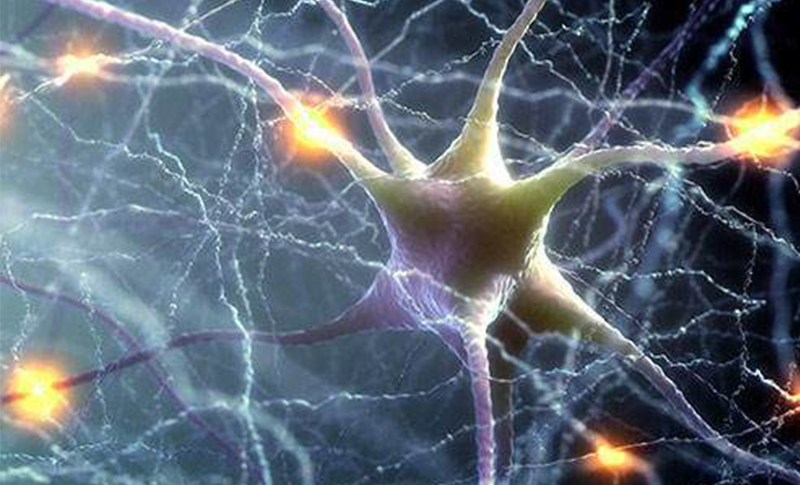Cholesterol—a yellowish, waxy type of lipid (fat)—is present in every single cell in our bodies (and there are trillions of them). It’s essential for a number of functions, including helping to build the structure of cell membranes; producing hormones like estrogen, testosterone, and adrenal hormones; and helping your metabolism work efficiently. However, we typically hear about cholesterol in relation to heart disease, with distinctions made between “good” and “bad” types.
Two types of lipoproteins (particles made of fats and protein) carry cholesterol throughout the blood in the body: low-density lipoprotein (LDL)—this is the so-called “bad” type—and high-density lipoprotein (HDL), a.k.a. “good” cholesterol. According to the Centers for Disease Control and Prevention (CDC), too much LDL cholesterol can create a buildup (plaque) in the walls of your blood vessels. On the other hand, HDL cholesterol transports cholesterol to your liver, which flushes it from the body. High levels of HDL cholesterol may help lower your risk for heart disease and stroke, says the CDC. Another type of fat in your blood, triglycerides, is used for energy.
“HDL cholesterol is a number that we consider to be better when it’s higher, unlike the other two,” says Holly F. Lofton, M.D., the director of NYU Langone Health’s medical weight management program in New York City. According to the CDC, the combination of high levels of triglycerides with low HDL and/or high LDL cholesterol levels can increase your risk for health issues, like heart attack.
Knowing about the different types of cholesterol is a good starting point for investigating the link between cholesterol and weight, so let’s do it!
Obesity is a condition defined by an accumulation of fatty tissue and not a particular cholesterol level, says Dr. Lofton. (Having a body mass index, or BMI, of 30 or higher indicates obesity.) However, being overweight raises your chances of having too much LDL cholesterol in your blood, which then increases your chances of heart problems and other serious issues. According to the Obesity Action Coalition, for every 10 pounds of excess weight you carry, your body produces as much as 10 milligrams of extra cholesterol every day.
Being overweight can increase cholesterol levels for different reasons, such as:
Increased fat tissue in your body means you have higher amounts of free fatty acids going to your liver, making it work harder to manage your cholesterol and leading to increased inflammation in the liver.
Inflammation throughout your body due to obesity can interfere with the way your body deals with HDL cholesterol (that’s the “good” stuff, remember) and other lipoproteins.
Insulin resistance connected with obesity can also increase the amount of free fatty acids in your liver. (The exact relationship between obesity and insulin resistance is unclear, but scientists believe it’s characterized by an impaired ability of insulin to restrict glucose output from the liver and to promote glucose uptake in fat and muscle.)
“These changes are all associated with higher risk for heart disease—independent of body weight,” says Yu-Ming Ni, M.D., a board-certified cardiologist and lipidologist at MemorialCare Heart and Vascular Institute at Orange Coast Medical Center in Fountain Valley, CA. “Additionally, often poor diet choices that lead to gaining weight tend to worsen cholesterol profile as well. High carbohydrate intake tends to lead to higher triglycerides, whereas high saturated fat intake tends towards higher LDL cholesterol.”
The short answer is: Yes, you can have high cholesterol at any body weight.
Cholesterol levels are measured in milligrams per deciliter of blood (mg/dL). The “ideal” levels vary depending on age and sex, but the Cleveland Clinic says that these are the levels you should be hoping for, in general:
HDL cholesterol at or above 60 mg/dL
LDL cholesterol at or below 100 mg/dL
Total cholesterol below 200 mg/dL
Triglycerides below 150 mg/dL
According to the American Heart Association, although having an unhealthy lifestyle—eating an unhealthy diet, getting little physical activity, and smoking—is the cause of high LDL cholesterol in most people, some people inherit a gene which causes them to have too much LDL cholesterol. To put that in perspective, of the 71 million Americans estimated to have high cholesterol, 1.3 million—including children—have the inherited type of high cholesterol, known as familial hypercholesterolemia.
But even in these cases, Dr. Ni emphasizes the importance of eating a healthy diet, exercising regularly, and avoiding gaining excessive weight to help lower cholesterol and triglycerides. “I still counsel my patients to pursue a healthy lifestyle, since that is something they do have control over,” he says.
A large body of research tells us that having high cholesterol—specifically LDL cholesterol—is the number one risk factor for developing heart disease. “The higher the cholesterol, the more cholesterol is available to deposit in the arteries of the body and develop into cholesterol plaques,” explains Dr. Ni. “These plaques can take decades to form, so even if you have no symptoms and are in good health, having high cholesterol puts you at higher risk for heart disease later in life. So I advise patients to talk to their doctor about how to lower their cholesterol, whether that involves using medications or not.”
Research published in Translational Behavioral Medicine found that patients who lost 5% to 10% of their body weight showed significant reductions in LDL cholesterol. Although the latest obesity medications are grabbing headlines for helping people achieve that level of weight loss (and more), our experts recommend the following lifestyle changes to lose excess weight.
Making some dietary changes will help you lose weight in a healthy way and hopefully lower cholesterol and triglycerides at the same time. Rather than try to stick to a specific diet, Dr. Lofton recommends decreasing your intake of trans fat and saturated fat—unlike unsaturated fat, these are the drivers of high cholesterol—which are frequently found in fried foods and processed foods. “At the same time, increase your consumption of healthier fats, such as nuts, seeds, avocado, and olive oil,” she says.
The most straightforward way to lose weight is to eat less calories than you burn per day. But while this may appear to be a super simple approach, Dr. Ni says it can be very challenging to pull off. “What is often more effective is to look at the way you live each day, and to see where you put yourself at risk for eating too much, such as snacking on high-calorie foods during the day or eating late at night,” he says. “Time limitations may make preparing healthier food at home more difficult, and lead to more eating out. And cultural values of ‘finishing your plate’ may lead to overeating as well.”
If you can take this approach to weight loss, Dr. Ni believes there’s a greater chance of success than trying to stick to fad diets that involve single food items or food groups.
Carrying extra weight may not even be related to an appetite for food, says Dr. Ni. “For example, people who don’t sleep enough hours tend to eat more, due to the effects of hormones on the body and simply having more time awake to be eating,” he says. And then there’s stress—which everyone finds themselves under at some point. “For many people, the way to cope with stress is to eat,” says Dr. Ni.
By improving your sleep (start with going to bed and waking up at the same time each day and ensuring your bedroom is cool, dark, quiet, and free from electronic devices) and taking steps to reduce stress, such as meditation, yoga, breathing exercises, and spending time with trusted friends and relatives, you can help to lower those stress levels.
Physical activity of at least 150 minutes per week (per the Physical Activity Guidelines for Americans) is a fundamental part of losing weight in a healthy, sustainable way. (You can break this up into shorter sessions to suit your preferences and schedule, and any exercise that gets your heart pumping goes!)
Combining regular exercise with a well-balanced diet that includes adequate protein, high fiber, low- glycemic carbohydrates, the proper amount of healthy fats, and water to create a caloric deficit is the ideal way to generate weight loss, says Dr. Lofton.
Because high cholesterol levels don’t usually cause any symptoms, it’s common for this issue to go undetected. That’s why the American Heart Association recommends that all adults have their cholesterol checked every four to six years from age 20. (Depending on any existing health conditions and individual risk factors, your doctor may recommend more frequent checks.)
While many people can lower their cholesterol levels through healthy eating and regular exercise, Dr. Lofton points out that due to genetic factors some patients may not lose weight even if they follow these guidelines. “In this case, it’s important to discuss options for safe, effective weight loss with your medical provider,” she says. Your doctor may suggest taking a statin, the first-line medication for high cholesterol that works by reducing the amount of cholesterol made by the liver and helping the liver remove cholesterol that is already in the blood.
If you’re concerned about your weight, try making some dietary changes and exercising more. Don’t be afraid to reach out to your primary health care provider for help if you’re not seeing the progress you’re hoping for. Many people struggle to lose weight or maintain a healthy weight, for a number of reasons. Remember, lower cholesterol levels aside, reaching a healthy weight brings numerous health benefits, from less pressure on joints to a reduced risk for a wide range of chronic diseases.
This article was originally published April 2, 2024 and most recently updated April 8, 2024.
© 2024 HealthCentral LLC. All rights reserved.
High levels of cholesterol or triglycerides can exist without being overweight or having obesity. “High cholesterol is affected by both genetic components and environmental factors,” explains Dr. Ni. “Some people have high cholesterol no matter how healthy their lifestyle is.”
 Certain Sleeping Patterns Linked to Greater Disease Risk
Certain Sleeping Patterns Linked to Greater Disease Risk
 7 Potential Health Benefits of Running
7 Potential Health Benefits of Running
 10 Best and Worst Foods to Eat on Weight Loss Drugs
10 Best and Worst Foods to Eat on Weight Loss Drugs
 Understanding Alzheimer's Disease: the Basics
Understanding Alzheimer's Disease: the Basics